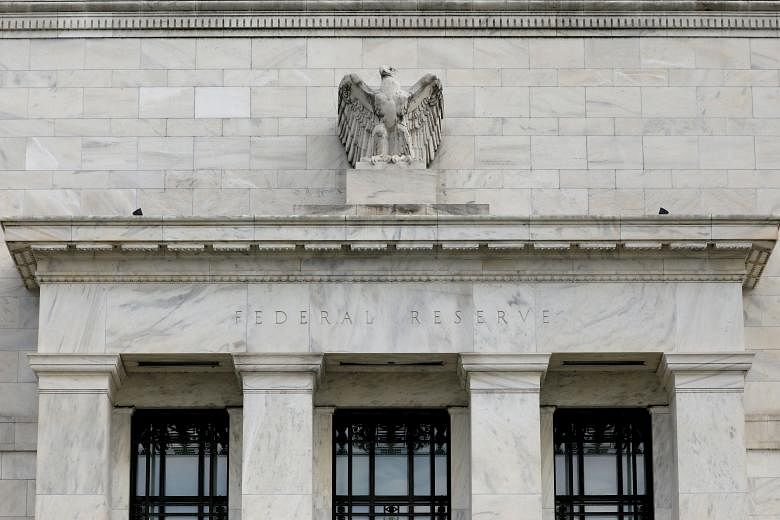TORONTO (BLOOMBERG) - Global bond markets are coming under pressure as United States Treasuries sell off on increased speculation of a March rate hike by the Federal Reserve.
Germany's 10-year borrowing rates on Monday (Jan 17) jumped to within three basis points of turning positive for the first time in almost three years, while Australia's benchmark yield climbed seven basis points to 1.92 per cent.
Shorter-dated Treasuries fell on Tuesday, sending the two-year yield above 1 per cent for the first time since February 2020.
The yield on two-year notes climbed as much as four basis points as markets reopened after Monday's holiday. Ten-year Treasury yields rose as much as two basis points to 1.81 per cent.
Yields are rising as investors increasingly fret that elevated US inflation will prompt the US Federal Reserve to tighten policy faster than anticipated, with markets now pricing in just over one hike that month.
JPMorgan Chase & Co chief executive Jamie Dimon said on Friday the central bank could raise rates as many as seven times, while billionaire investor Bill Ackman argued for a bigger-than-expected 50 basis points move in March.
Most bonds pay a fixed interest rate, making them more attractive to investors when interest rates fall. Conversely, when interest rates rise, bonds are less attractive, causing bond prices to fall.
A bond's yield is based on the bond's coupon payments divided by its market price, so as bond prices fall, bond yields rise.
Faster policy tightening bets are not confined to the Fed after money markets briefly priced a 10-basis-point rate hike for the European Central Bank as soon as September, while almost 100 basis points of Bank of England rate increases are expected by November.
If global central bankers "normalise policy too quickly, they risk setting off a volatility wave which can generate a market re-pricing in highly algorithmic markets", Jamieson Coote Bonds wrote in a note. "Central bankers may very well kill inflation by these actions, but they also may kill off the economy in the process in a highly interest rate sensitive world."
Japan's 10-year yield was steady at 0.145 per cent on Monday after climbing to as high as 0.155 per cent on Friday. Traders are waiting to hear from the Bank of Japan this week following a report of a debate on future policy.
By contrast, China's bonds gained after the People's Bank of China cut a key interest rate for the first time in almost two years to bolster an economy that is losing momentum in the face of repeated virus outbreaks. The yield on the nation's 10-year debt declined as much as three basis points to 2.77 per cent.

